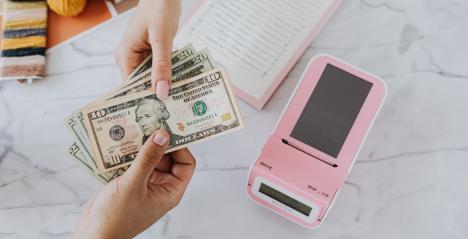With the explosion of content available online, and increased immigration, people nowadays have more opportunities to interact with other individuals from different backgrounds and cultures. It is an exciting time for many, but it can also be a tricky one to navigate.
Some of the questions you may be wondering include: How can you interact with the other person respectfully? Or how can you develop lasting friendships and connections with people from a different culture?
These are important questions in an era where things are becoming more globalized, and you’re not the only one seeking answers. Care providers, researchers, and governing bodies are among the many entities that seek to improve their cultural sensitivity. It is a crucial aspect that will help them provide better information and services to and for people of all ages, ethnicities, genders, religions, and cultures.
But the question stands: how can you, on an individual level, improve your cultural sensitivity? While the exact definition of cultural sensitivity is difficult to pinpoint, most parties agree that it is something that anyone can work on developing. To get you started, here are some of the many ways you can become more aware and mindful of other people’s customs and backgrounds.
Expose Yourself to Cultures Other Than Your Own
One of the most effective and practical ways to become culturally sensitive is to seek out people, items, and places from a different culture. Besides traveling, you can accomplish this in a variety of ways. You can download apps such as the Muslim Pro app to locate halal restaurants where Muslims usually congregate. You can check out a country’s entertainment mediums, such as Korean dramas or Bollywood movies, to learn more about their customs and even their sense of humor. You can also look up local organizations that hold intercultural exchanges or meetings to help people from different backgrounds get together.
Indeed, there is no limit to the things you can do to introduce yourself to another culture. The key is to create these opportunities to learn and explore. Seek these objects and spaces and do so intentionally. You might just be surprised by what you discover.
Become Aware of Your Culture and Any Biases
For many, it is difficult to look into your own culture and reexamine it in a different light. However, this is a necessary step to take in the process of becoming more culturally sensitive. Historically, several wars, conflicts, and tragedies happened due to inherent biases and general fear of the other. Thus, as the human race progresses, it’s critical for individuals to address these biases and ask the difficult questions.
Do these preconceived notions have a basis? Or are they simply biases perpetuated by your environment? Do any of these notions affect the way you interact with other people? Do they limit you from seeing the other person in a holistic manner?
By asking these questions, you can reexamine your culture in a healthy manner and address any concerns that prevent you from becoming more accepting of other backgrounds.
Do Away with Ethnocentric Beliefs
A critical problem that stands in the way of developing and promoting cultural sensitivity is ethnocentricity. The belief that one’s culture is superior to others (or the only correct way of life) not only hinders people’s growth but also can be potentially harmful, especially for minority groups.
The cornerstone of improving cultural sensitivity is understanding that cultural differences and similarities–such as language, customs, beliefs, foods, or lifestyles–exist, and one is not inherently better or worse than the other. After all, people come in all shapes and sizes and grow in different environments which shape who they are. By acknowledging and respecting these differences, you can be more open to other perspectives and have a more holistic view of not just their culture but humanity as well.
Study the Language, Customs, and Non-Verbal Cues
Today, people have several resources that they can use to learn more about the customs, language, and beliefs of another culture. Learning a new language, in particular, is a highly effective tool because it will allow you to communicate and interact with other individuals from that background more extensively. Looking up non-verbal cues is also important in checking if the other person feels comfortable or distressed, which can be helpful in steering conversations.
Researching customs, meanwhile, can help you respect any restrictions or schedules they have to follow. For example, the Muslim Pro app has a prayer schedule that lists down the exact time Islam followers have to pray, which can serve as your guide for timing meetings or parties with Muslim participants.
One important note: don’t get defensive when you’re corrected by the other person. While you can research extensively about another culture, there will always be tiny things you may get wrong or may no longer be applicable. It’s best to always listen to the other person who practices those customs in such cases.
Overall, improving cultural sensitivity can be difficult, but it does become easier the more you practice it. As you expose yourself to more people and places apart from your culture, you will have a better understanding of not only the bigger picture of their societies but also your place in a much bigger world.












